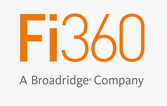The likelihood of a global recession has risen sharply, driven by escalating trade tensions and economic fallout from U.S. President Donald Trump’s tariff policies. Initiated on April 2 with a 10% tariff on all U.S. imports and supplemented by reciprocal tariffs as high as 50% on 57 countries, these measures have triggered widespread retaliation, notably China’s 34% tariff on U.S. goods effective April 10. This tit-for-tat escalation has heightened fears of a synchronized global downturn, with analysts revising recession probabilities upward based on deteriorating economic indicators and market reactions.
The probability of a global recession by year-end has surged, with J.P. Morgan recently increasing its estimate to 60% from 40%, citing the disruptive impact of U.S. tariffs on business confidence and global growth (Reuters, April 5, 2025). This follows a tumultuous week where the MSCI World Index dropped 5.37%, reflecting broad-based equity losses (Reuters, April 5, 2025). The International Monetary Fund (IMF) notes that while a near-term recession isn’t guaranteed, the uncertainty from Trump’s trade policies is significantly denting global confidence (Reuters, March 31, 2025). Consumer sentiment has weakened, with U.S. consumer confidence plunging and inflation expectations hitting a 32-year high, potentially curbing spending that drives 70% of global GDP (CNN, March 31, 2025; Forbes, October 25, 2024). Economic models suggest a 0.5% drag on global GDP from tariffs alone, a figure that could triple if sentiment and investment falter further (J.P. Morgan Research, March 31, 2025). Europe faces a higher risk, with Goldman Sachs projecting near-zero growth and a possible technical recession in 2025 (Reuters, March 31, 2025).
Counterbalancing these risks, some regions like South Asia and the Middle East may fare better, potentially benefiting from trade diversification away from China (World Economic Forum, January 16, 2023). The Federal Reserve and European Central Bank are expected to cut rates—possibly three times each in 2025—to mitigate weakness, though their capacity may be limited if inflation, currently at 2.8% in the U.S., persists (Reuters, March 31, 2025; U.S. Bank, March 29, 2025). Corporate CFOs surveyed by CNBC express pessimism, with 60% anticipating a U.S. recession by late 2025, a sentiment echoed globally as firms cut spending amid policy chaos (CNBC, March 25, 2025). While a 60% probability isn’t a certainty, the convergence of trade wars, declining confidence, and slowing growth—evidenced by layoffs like Stellantis’ 900 U.S. workers—suggests a global recession is increasingly plausible (Reuters, April 4, 2025). The outcome hinges on whether tariff negotiations de-escalate or inflationary pressures force a sharper downturn.
References:
- Reuters. (2025, April 5). “Global brokerages raise recession odds; J.P. Morgan sees 60% chance.”
- Reuters. (2025, March 31). “Goldman raises odds of US recession to 35%.”
- Reuters. (2025, April 4). “JP Morgan says chances of a global recession stand at 60% now.”
- Reuters. (2025, March 31). “US President Trump’s push for sweeping tariffs is creating great uncertainty.”
- CNN. (2025, March 31). “Recession odds are rising as Trump’s trade war escalates, Goldman Sachs says.”
- Forbes. (2024, October 25). “Sinking Consumer Confidence Raises Odds Of A 2025 Recession.”
- J.P. Morgan Research. (2025, March 31). “What Is the Probability of a Recession?”
- World Economic Forum. (2023, January 16). “Recession in 2023? That depends on where you are in the world.”
- U.S. Bank. (2025, March 29). “Is the Risk of a Recession Fading?”
- CNBC. (2025, March 25). “Recession is coming before end of 2025, corporate CFOs say.”





